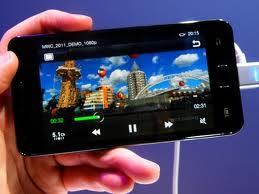  Blackberry smartphones are losing ground to the combined strength of iPhone and Android smartphones, as far as their use at the workplace is concerned, according to a survey of 1,681 U.S.-based workers released Thursday by Forrester Research.
That finding amplifies what many have known for a while about the entrenched workplace smartphone veteran: the BlackBerry faces trouble from its competitors.
The BlackBerry, made by Research in Motion, still leads among U.S. workers, with 42%, the survey said, with Apple''s iPhone accounting for 22% and Android devices, 26%.
The survey also found that nearly half, or 48% of the group, said that they chose the primary smartphone used for their work without considering what their company supports. Only 29% said they chose the smartphone from a list of phones the company supports, while 23% said they had no choice in the matter.
Often, corporate IT shops will choose BlackBerry smartphones when requiring a worker to use a specific smartphone, partly because of the perceived security benefits, many analysts, including at Forrester, have found. The growth in Android phones and the iPhone -- many of them brought to workplaces by workers independently -- are forcing IT shops to rethink that decision, however.
Ted Schadler, a Forrester analyst, said the survey points to two major trends. The first is that more workers than ever are bringing consumer-focused devices, such as Android and iPhone smartphones, to use for work, and more companies are supporting those devices.
The other trend is that IT shops are not realizing that even if they require that employees use a BlackBerry or other device at work, those same workers often bring in a second phone of their own to do other kinds of work-related tasks with applications that are not supported on the company-required phone.
Examples Schadler gave of such applications on the worker's second phone are Skype for calling, Evernote for taking notes or Dropbox for storing documents and videos from various devices in the cloud.
"More companies are supporting bring-your-own smartphone, and more workers are going around IT without IT knowing what workers are doing," he said.
Questions on mobile devices were part of a wider survey that involved 4,985 U.S. workers. In the wider survey, Forrester found that 50% of information workers (those who work more than an hour a day on a computer) are splitting their time between the office and home or another location, underscoring the need for mobile devices.
Meanwhile, only 10% of directors and executives are officebound, the survey, conducted in May, found.
Schadler said one of the most dramatic examples of mobile computing he's seen is at Medtronic, a medical technology provider that has deployed 5,000iPads, about two-thirds of which are used by its sales personnel. Forrester granted Medtronic a Groundswell Award for its innovation.
Forrester's survey also found that general worker satisfaction with IT is not great. Fewer than half of information workers and managers said they were satisified with services and technologies provided by their company's IT department. |